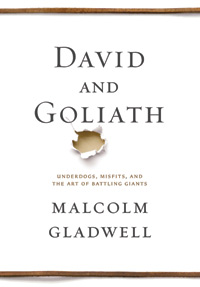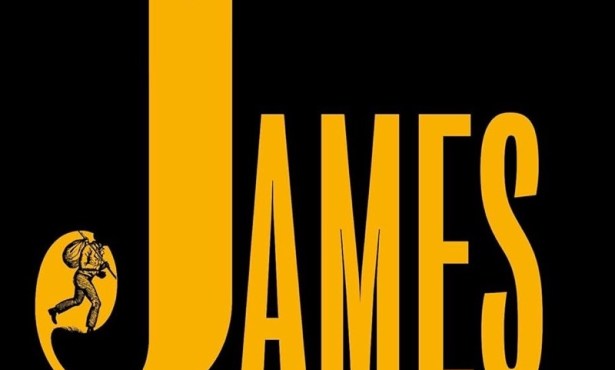Malcolm Gladwell to Speak in Santa Barbara
Author of The Tipping Point and Blink to Discuss Latest Book
With The Tipping Point, he showed how major social change often starts with one person. In Blink, he demonstrated that split-second decisions sometimes serve us better than careful deliberation. With David and Goliath, journalist and cultural commentator Malcolm Gladwell upends yet another commonly held belief. His subject this time: the underdog.
Subtitled Underdogs, Misfits, and the Art of Battling Giants, Gladwell’s latest book challenges the very concept of advantage, arguing that individuals, teams, and organizations we perceive as “disadvantaged” often have an edge on the competition.
In advance of his Santa Barbara appearance on April 11, he spoke with me on the phone about the inspiration that led to the book.
“I had written an article for the New Yorker about this guy in the Silicon Valley who coached a girls’ basketball team to the national championships,” he explained. “That story got me thinking about all the ways you can compete.”

The story, which appears in the book, centers on Vivek Ranadivé, a software engineer who decided to coach his daughter’s basketball team: a crew of nerdy, inexperienced 12-year-old girls. By employing an unusual defensive strategy, Ranadivé turned this crew of apparent “underdogs” into an unbeatable force on the court.
There are many such surprises chronicled in the book, from findings that smaller class sizes don’t necessarily yield better learning, to an investigation of the link between dyslexia and entrepreneurial success. Though most chapters focus on contemporary scenarios, Gladwell points out that our misunderstanding of the underdog is far from a new phenomenon.
The book’s title comes from the earliest example he examines: the battle between the great Philistine warrior Goliath and a young Israelite shepherd named David. As it’s commonly understood, the story of David and Goliath is the story of an unlikely victory of weakness over great strength. We’ve got that all wrong, Gladwell said. It was David — not Goliath — who had the advantage. In the book’s introduction, he explains his reasoning: Goliath was a heavy, slow-moving brute of a soldier who expected a sword fight; David was armed with a sling and a rock, ran at him from a distance, and hit him square in the forehead, breaking convention and winning the fight. Far from being an underdog, Gladwell suggests, David came to the conflict with every advantage over his lumbering adversary — as long as he amended the rules of engagement.
“Then, as now, we were misunderstanding the nature of advantage,” Gladwell noted. “The reason I dwell as much as I do on the biblical story is that this was as true thousands of years ago as it is today.”
Though he believes this blind spot crosses both cultures and eras, Gladwell noted that the peril of underestimating the opponent is symptomatic of contemporary America.
“On a broad cultural level, it’s a story of America’s relative decline,” he said. “It’s a warning. Other countries are willing to make sacrifices we no longer are. Kids from other countries are willing to work harder and achieve more. The idea that people in positions of authority develop complacency may be an old notion, but today it has particular relevance.”
For those who consider themselves Goliaths, Gladwell’s newest book may be less than encouraging. But for anyone who’s ever felt like the underdog — or even just rooted for him — David and Goliath offers a refreshing perspective on the advantages of disadvantage.
4•1•1
UCSB Arts & Lectures brings Malcolm Gladwell Friday, April 11, at 8 p.m., to the Arlington, 1317 State St. For tickets, call 893-3535 or visit artsandlectures.sa.ucsb.edu.



